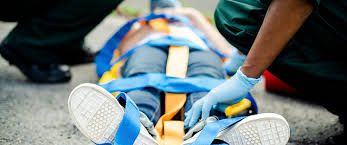JAMES CONSULT!NG
PROVIDING SOLUTIONS


Book your
next course.
Scroll through a book your next course, and if you cant find what your looking for drop us a message and one of the team will be happy to help.
First Person On Scene FPOS 3 (i)
Course Information
This qualification develops the knowledge and skills required by those working in security services or high-risk environments who are required to hold an advanced First Aid qualification.
Running weekdays starting on March 10th 2025, and finishing on March 13th 2025, the qualification ensures learners can provide suitable assistance for various medical conditions and trauma-related injuries, including developing an awareness of ballistic and blast injuries.
The qualification supports a role in the workplace and will enable learners to progress to further learning in this sector.
This qualification has been developed to meet the competency requirements of the Faculty of Pre-hospital Care – The Royal College of Surgeons Edinburgh at Level C and meets the requirements for the Security Industry Authority (SIA) for Close Protection Officers and is also ideal for Cabin Crew, Industrial First Aiders and those working in remote areas.
This qualification is delivered in a face-to-face setting over 4 days and should complete the qualification within 10 weeks.
Assessment
This course is assessed by Multiple Choice Question exams and Observation of practical skills.
Course content
The Pre Hospital Environment
- The role of the First Responder
- Minimising risk of infection
- Consent
- Principles of Scene Management
- Common Travel Illnesses
Casualty Assessment
- Mechanism of Injury
- Patient Assessment
- Communicating with patients
- Primary survey and assessment
Respiration and Airway Management
- Recognition of respiratory problems
- Advanced airway management - Oral, Nasal and Laryngeal Airways
- Choking
- Oxygen Administration- Delivery systems and SpO2
Basic Life Support
- Cardio Pulmonary Resuscitation - including protocols for remote environments
- Paediatric CPR
Defibrillation
- Automated external defibrillation
Circulation and Shock
- Recognition and initial care of haemorrhage
- Catastrophic Haemorrhage - including the use of tourniquets and haemostatics
- Shock
- Cardiogenic
- Neurogenic
- Hypovolaemic
- Septic
- Anaphylactic
Damage
- General Bone / Joint injuries
- Head injuries
- Spinal & Pelvic injuries
- Chest injuries
- Burns
- Eye Injuries
- Blast Injuries
- Ballistic Injuries
Environment
- Drowning
- Heat Stroke & Dehydration
- Hypothermia
Medical Related Emergencies
- Heart attack/angina
- Diabetes
- Stroke
- Epilepsy
- Asthma - including additional remote protocols
- Anaphylaxis - including additional remote protocols
- Poisoning
